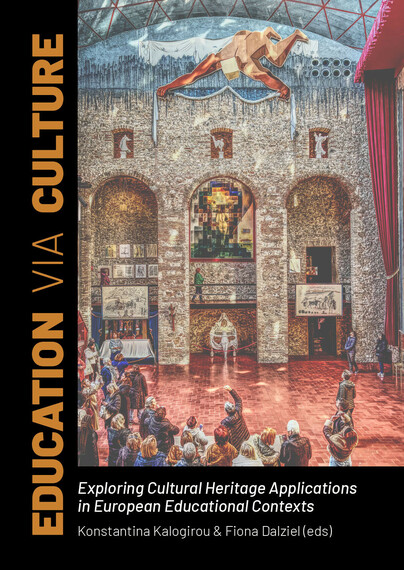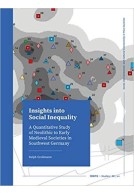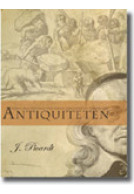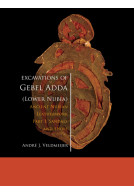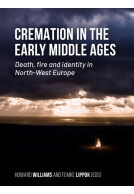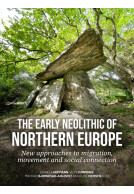Google Books previews are unavailable because you have chosen to turn off third party cookies for enhanced content. Visit our cookies page to review your cookie settings.
Education VIA Culture (Hardback)
Exploring Cultural Heritage Applications in European Educational Contexts
Imprint: Sidestone Press
Pages: 256
Illustrations: 57fc / 14bw
ISBN: 9789464263305
Published: 24th March 2025
Script Academic & Professional
Pages: 256
Illustrations: 57fc / 14bw
ISBN: 9789464263305
Published: 24th March 2025
Script Academic & Professional
This book will be reprinted and your order will be released in due course.
You'll be £90.00 closer to your next £10.00 credit when you purchase Education VIA Culture. What's this?
+£4.99 UK Delivery or free UK delivery if order is over £40
(click here for international delivery rates)
Need a currency converter? Check XE.com for live rates
(click here for international delivery rates)
Need a currency converter? Check XE.com for live rates
Heritage and Education are often cited together as two areas that could equally benefit from co-application and dialogue. This book includes some of the papers that were presented at the ‘Education VIA Culture’ conference, which was held online in December 2020. The chapters of this volume focus on how people can learn about heritage and engage with heritage through educational (formal or non-formal) processes.
In the VIA Culture understanding, the best way to create awareness about cultural heritage is not just to focus on education about heritage but to make heritage a part of the educational process. Education VIA Culture brings together academics, researchers, education practitioners, teachers, heritage professionals, and students, and generates a broad discussion about the possible applications of cultural heritage in formal and non-formal education. The papers in the volume present methodological approaches to the use of cultural heritage—local, regional, or international—as a teaching medium. Various case studies from Greece, Italy, Serbia, Portugal, the UK, and the USA, where cultural heritage was mobilized as a teaching medium, are presented.
In this volume, the role of museums, archaeological sites, exhibitions, and heritage landscapes in education is prominent through applications that vary from Ottoman monuments in Thessaloniki, Greece, to the industrial landscapes of Cardiff, UK, and the world-famous Acropolis of Athens. Heritage assets in many of the case studies presented in the volume have inspired art-based teaching applications through drama, theatre, music, and storytelling. Digital applications for heritage education are also presented. Finally, the volume promotes the idea that in an increasingly diverse Europe, the cultural heritage of ethnic and social minorities can be used as a medium for creating inclusive and equal societies.
Other titles in Sidestone Press...







